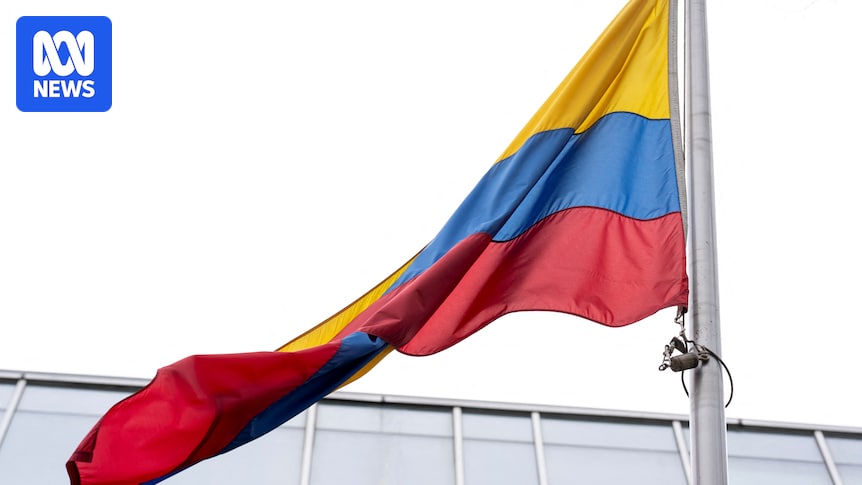
Colombia has recalled its ambassador to the United States following an announcement by former President Donald Trump to increase tariffs on the South American nation. This decision comes in the wake of a contentious exchange between the two countries, rooted in the U.S. military’s actions against vessels allegedly involved in drug trafficking.
The Colombian Foreign Ministry confirmed on Monday that Daniel García-Peña, the country’s ambassador in Washington D.C., had already returned to Bogotá. Chancellor Rosa Yolanda Villavicencio Mapy stated that further details would soon be provided regarding President Gustavo Petro Urrego’s directive to recall Mr. García-Peña.
Escalating Rhetoric and Accusations
On Sunday, Donald Trump accused President Petro of being an “illegal drug leader,” threatening to cut financial aid to Colombia due to perceived inaction against drug production. In a post on Truth Social, Trump stated,
“The purpose of this drug production is the sale of massive amounts of product into the United States, causing death, destruction, and havoc.”
He further criticized Petro as a “low rated and very unpopular leader” and warned of potential U.S. intervention.
President Petro, known for his outspoken nature on social media, refuted Trump’s claims, defending his administration’s efforts against narcotics.
“Trying to promote peace in Colombia is not being a drug trafficker,”
Petro asserted, suggesting that Trump was misled by his advisors and emphasizing his role as a key opponent of drug trafficking in Colombia.
Historical Context and Current Dynamics
This diplomatic rift highlights a broader tension in U.S.-Latin American relations, particularly as the Trump administration has intensified pressure on neighboring Venezuela. American military assets have been deployed in the region, described by the administration as part of an “armed conflict” with drug cartels. Notably, covert CIA operations have been authorized inside Venezuela.
Colombia, a longstanding ally of the United States and a major recipient of U.S. aid, has seen coca cultivation reach unprecedented levels, as reported by the United Nations. Despite a peace agreement a decade ago, violence persists in rural regions previously plagued by insurgency. In September, the Trump administration criticized Colombia for insufficient cooperation in the drug war, although sanctions were waived to avoid aid cuts. Colombia received approximately $230 million in U.S. aid in the last fiscal year, a significant decrease from previous years.
Implications for Bilateral Relations
The ongoing feud between Petro and Trump has seen various flashpoints, including Petro’s initial refusal of U.S. military flights deporting migrants, which led to tariff threats from Trump. Additionally, the State Department threatened to revoke Petro’s visa during the UN General Assembly due to his controversial remarks to American soldiers.
Further complicating matters, Petro accused the U.S. of an extrajudicial killing following a missile strike on a Colombian vessel, which he claims resulted in the death of a fisherman unrelated to drug trafficking. Petro has called for legal action in international and U.S. courts, underscoring the gravity of the situation.
“The United States has invaded our national territory, fired a missile to kill a humble fisherman, and destroyed his family,”
Petro declared on social media.
Despite these tensions, the Colombian government continues to pursue legal action against individuals involved in recent U.S. strikes on drug-laden submersibles. Seven such strikes have occurred since early September, with at least 32 fatalities reported.
Looking Ahead
The diplomatic recall and escalating rhetoric signal a potentially fraught period for U.S.-Colombian relations. As both nations navigate these challenges, the international community watches closely, aware of the broader implications for regional stability and the ongoing fight against drug trafficking. The coming days and weeks will likely see further developments as both governments articulate their positions and seek resolution.







